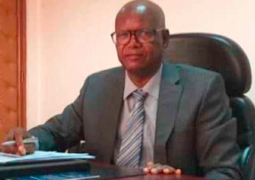Child Protection Alliance, in collaboration with their Netherlands ECPAT counterparts recently held a two-day capacity building training for stakeholders in the tourism sector at the Baobab Holiday Resort.
The training, which brought together twenty participants, was designed to update stakeholders in the tourism sector about child sex tourism in The Gambia and the way forward. It is among others geared towards capacity building and information sharing on interventions and policy issues on what have been done in terms of child sex tourism in The Gambia. In his presentation, Mr. Ousman G.A. Kebbeh, Tourism Human Resources Officer at the Gambia Tourism Authority stated that child sex tourism is a worldwide phenomenon, adding that in some destinations as in The Gambia, the activities are scaling down.
He said GTA, in collaboration with the Ministry of Tourism and Culture and other stakeholders like the Tourism Security Unit, CPA and UNICEF are working tirelessly to eradicate child sex tourism.
Dilating on policy implementation, Kebbeh added that policy documents have been developed for implementation, such as the tourism master plan document, GTA Act and the tourism offences act 2003, noting that GTA collaborates with international bodies, such as UNICEF and CPA, to develop Codes of Conduct and messages with stakeholders to send clear information to the perpetrators right from the airport into hotels, motels, camps, and homes.
The Gambia, he said, has a rich and diverse cultural heritage which is a source of attraction for many tourists, adding that it is important that school children are well prepared to acquire knowledge about the culture and history of the country and develop skills to preserve and protect them. He challenged school children to be prepared to promote these values.
For his part, Mr. Njundu Drammeh, the Coordinator of the Child Protection Alliance said the movement of offenders differentiate child sex tourism from child prostitution as a whole. He noted that the causes of child sex tourism, among others, is poverty, lack of employment, social vulnerable families, alcoholism, disease, drug abuse, child prostitution and street children.
He urged the participants to utilise the knowledge gained from the training programme and share their experience with others.
Speaking on the topic "Police investigation on child sex tourism," Assistant Superintendent of Police ASP Yamundow Jagne-Joof explained that child sex tourism involves children in sexual activities.
She said investigation is mostly done when a case is reported to the police, but can be done before, during and after an incident occur, stressing that investigations on child sex tourism must start from the moment of its disclosure.
ASP Jagne Joof revealed further that child sex tourism is a very serious offence and is a violation of the rights of children.
She noted that the tourism offences act 2003 has spelt out many types of offence relating to child sex tourism and has provided very stiff fines and imprisonment terms.
"The law imposes a duty on society to report such cases, because it is the way that we can together fight this scourge by punishing perpetrators and protecting victims," she concluded.
Read Other Articles In Article (Archive)
Obtaining money by false pretence case proceeds
Jan 21, 2011, 1:24 PM



